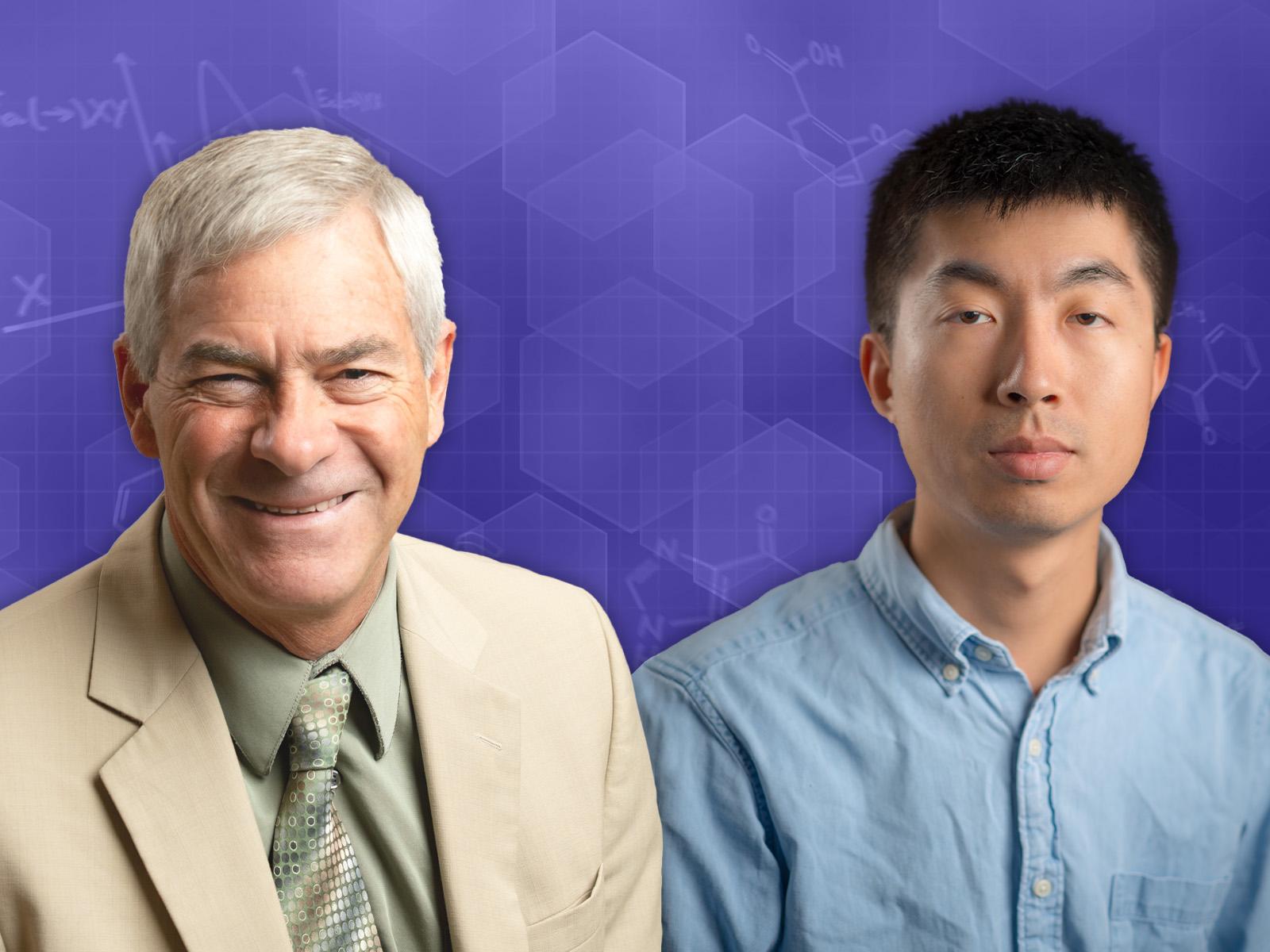Zhang and De Yoreo Co-organize Colloid and Surface Science Symposium
Seattle hosts a symposium that covers research on all aspects of colloids

Jim De Yoreo (left) and Shuai Zhang (right) will be co-organizing the 98th ACS Colloid and Surface Science Symposium, to be held in June 2024 in Seattle, WA.
(Composite Image by Kelly Machart | Pacific Northwest National Laboratory)
Colloids are materials in which microscopic particles of one substance are suspended or dispersed in another. There are many examples of colloids that we encounter everyday: foams, gelatin, jelly, soaps, and vaccines. In addition, colloids play many important roles in biology and the environment, where colloidal particles are used in phase separation and transport contaminants in surface water.
Shuai Zhang, a Pacific Northwest National Laboratory (PNNL) materials scientist, is co-organizing the 98th Colloid and Surface Science Symposium (ACS CSSS 2024) with Jim De Yoreo, a Battelle fellow at PNNL. “The conference will be bringing people together, particularly up-and-coming researchers,” says De Yoreo. The symposium will be held on the University of Washington campus in Seattle, WA, on June 23–26, 2024. This will be the first time that the University of Washington has hosted the symposium since 2008.
According to Zhang, the symposium is “important, with a long history” that dates back to the first one held in 1923. It has continued to grow in size as the importance of colloids and surface science has grown in both academia and industry, and as the technological applications of colloids has become more important in the areas of energy, medicine, agriculture, and the environment.
“Our expectation is that there will be at least 500 attendees from both the U.S. and overseas,” said Zhang. Researchers from a wide variety of disciplines across the globe will attend and give presentations. In particular, greater attendance is anticipated from researchers from Japan and South Korea because of Seattle’s proximity to Asia. In addition, the symposium will have invited speakers and attendees from Mexico and Canada.
Attendees will be able to choose from talks and poster presentations in 16 technical sessions covering a wide range of topics: Surface Science, Catalysis, and Electrochemistry; Environmental and Sustainability; Biological, Bio-inspired, and Biomimetic Colloids and Interfaces; and Automation, ML, and AI in Colloid and Surface Science; among others. Several PNNL scientists will be giving invited talks and/or chairing sessions, including Johannes Lercher (Surface Science, Catalysis, and Electrochemistry), Ben Legg (Colloidal and Surface Forces), Jaehun Chun (Rheology and Complex Fluids), Lili Liu (Synthesis of Colloids, Crystals, and Nanomaterials), and Elias Nakouzi (Directed and Self-Assembly).
Although the symposium has international attendance, Zhang stresses that it will have “local flavors” related to the interests of industrial, commercial, and academic entities in the Pacific Northwest. Specifically, there is a special session dedicated to collaboration between these entities. “This year, we will have a session called ‘Connecting the Dots,’ which will be held specifically for interfacing between academia and industry,” said Zhang. “This session will try to build stronger connections between local industry/commercial opportunities and academia. I expect this to be a fun and informative session. I hope we will attract the attention of local companies.”
Researchers interested in attending this event can register on the symposium website.
Published: March 13, 2024